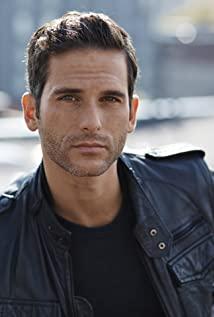In the first few minutes of the film, the audience can feel a major feature of the film: there are a lot of inner monologues. In films such as Rejuvenation, the protagonist's monologue is mainly used for narrative, in order to tell the story clearly and clearly over a long time span. In this film, the inner monologue is a direct expression of one's heart, an expression more like a novel or a drama. A few things to say about the director's unique approach:
1. Brad's inner monologue is very trivial, most of which are flashed and "unseen" thoughts. The secrecy of these thoughts determines that they are not exposed in the first place. It's hard to express.
2. As far as my personal life is concerned, I can also fully understand the situation where the brain is constantly bursting with thoughts, which is in line with real life. This way of expression makes the film more real, vivid, and at the same time unique.
In addition to the inner monologue, there are many Brad's fantasies in the film, such as his fantasies about the life of rich children, his happy life with two Harvard girls, and his son's future life. In fact, we can see fantasy bridges in many movies, but it is rare to see a lot of constant fantasy like this movie.
Whether it is a monologue or a fantasy, we can see that the narrative angle of this film is very subjective. The narrative is almost entirely from Brad's point of view. Such a subjective perspective is connected with the content in the Harvard girl's lines. The Harvard girl believes that Brad lived to be forty or fifty years old and believed that the earth revolved around him. Turning is not easy. Brad sees himself as the center of the universe, is very sensitive to his own feelings, and knows very little about others. From Brad's point of view, the images of other characters in the film are very thin, almost only a symbolic impression, arrogant old classmates, silent sons who love music, optimistic and simple wives, etc. We may be able to learn from some In detail, these characters were originally rich, but the narrative angle of the film made Brad's image so complicated that I couldn't get to know any of the other characters in depth.
Aside from thinking he is the center, Brad is a mediocre person.
The reason why I say that he is a mediocre person is because he is over the age and still can't get a stable heart. On the one hand, he wants to do meaningful things, and he wants to devote his strength to things worthy of praise; on the other hand, he himself is very envious of wealth and fame, and even distorts these things in his own fantasies. From my perspective, I even wonder if the purpose of Brad's career is whether he really thinks he's doing something meaningful, or if he just wants to have a good reputation for contributing to society.
Such characters can arouse people's thinking about some classic propositions and stimulate the search for the meaning of life. Should one's life be for oneself or for others? Should you pursue your own pleasure or your contribution to others and society? Should the individual be self-centered? The true idealist, I think, is not the kind of person who sacrifices himself completely for others, but achieves a harmonious alignment between self-actualization and helping others. However, if the essence of an individual is not like this, but he is full of yearning for such a state, should he pursue such a path or follow his own nature? I think it is these entanglements and myths that make Brad unable to feel happiness, hesitating and hesitating between various concepts and ideals.
The film is also a little valuable, that is, in Brad's various depressions, he still has his own joy, especially in the pleasant jokes and sincere interactions between him and his son, which made me see, More of a happy, expectant and loving father, rather than a sullen middle-aged mediocre. These warm moments are also intertwined with Brad's anger at his son. Brad blamed his son for the first time because he wanted to use his son's admission to Harvard to ease his inferiority complex about his career failure, but his son remembered The interview time was wrong; the second time, it was his son's words that reminded him of the idealistic Harvard female college student's disapproval of him. Such disapproval is undoubtedly fatal to a person with low self-esteem.
Brad's mediocre image is not glamorous at all, but it can be understood by me. This is a cross-cultural understanding. Perhaps the content of the film itself has universal significance. I once thought that the exaggerated hope of Jackie Chan only belongs to us. I don't know if the "mediocre" Brad's various temperaments are yours, but I know that, more or less, I am also a mediocre person like Brad.
View more about Brad's Status reviews











